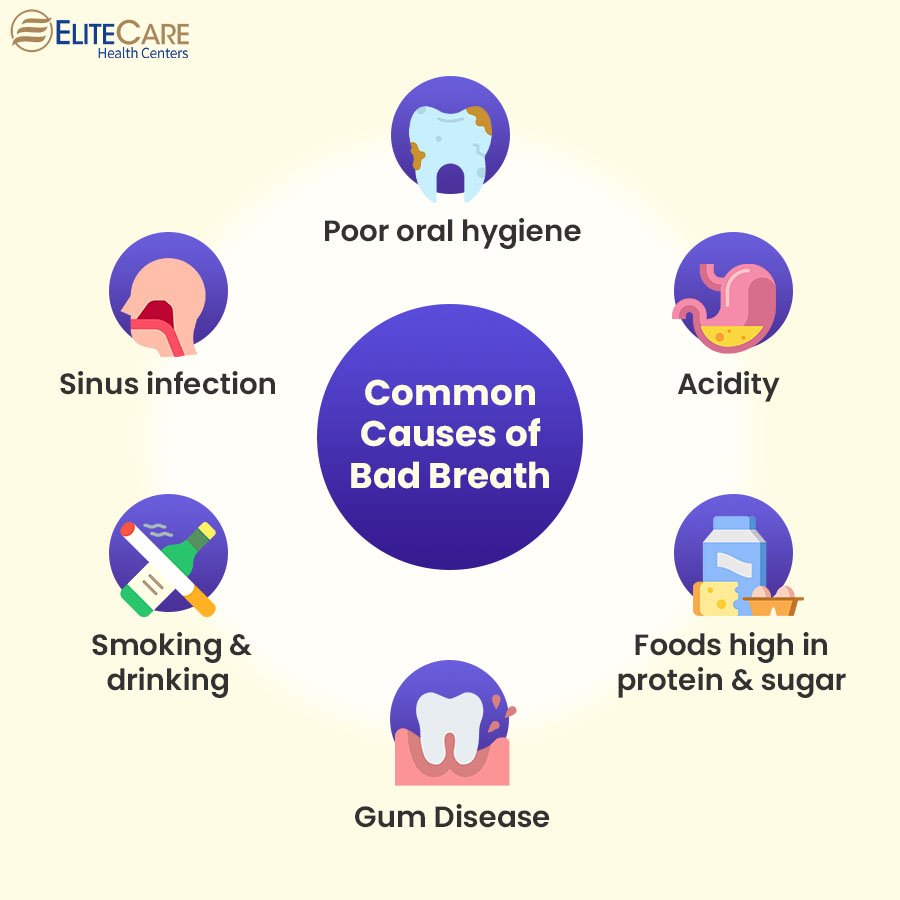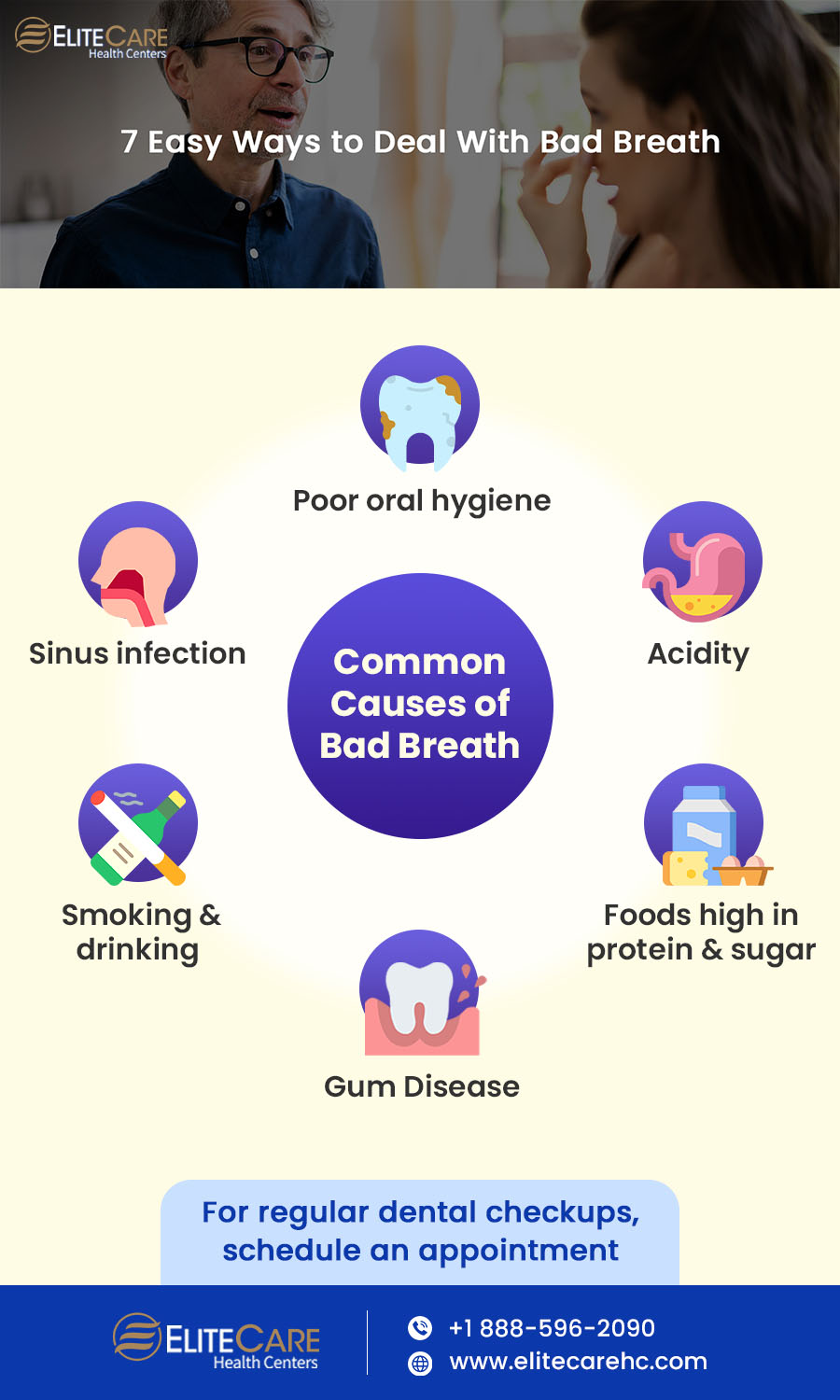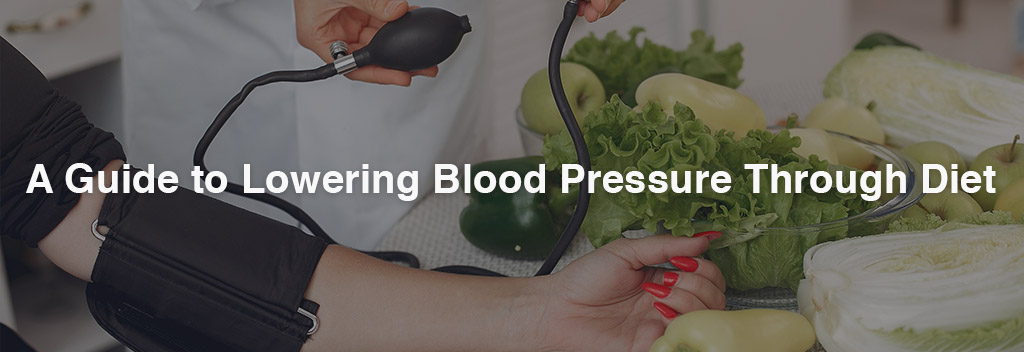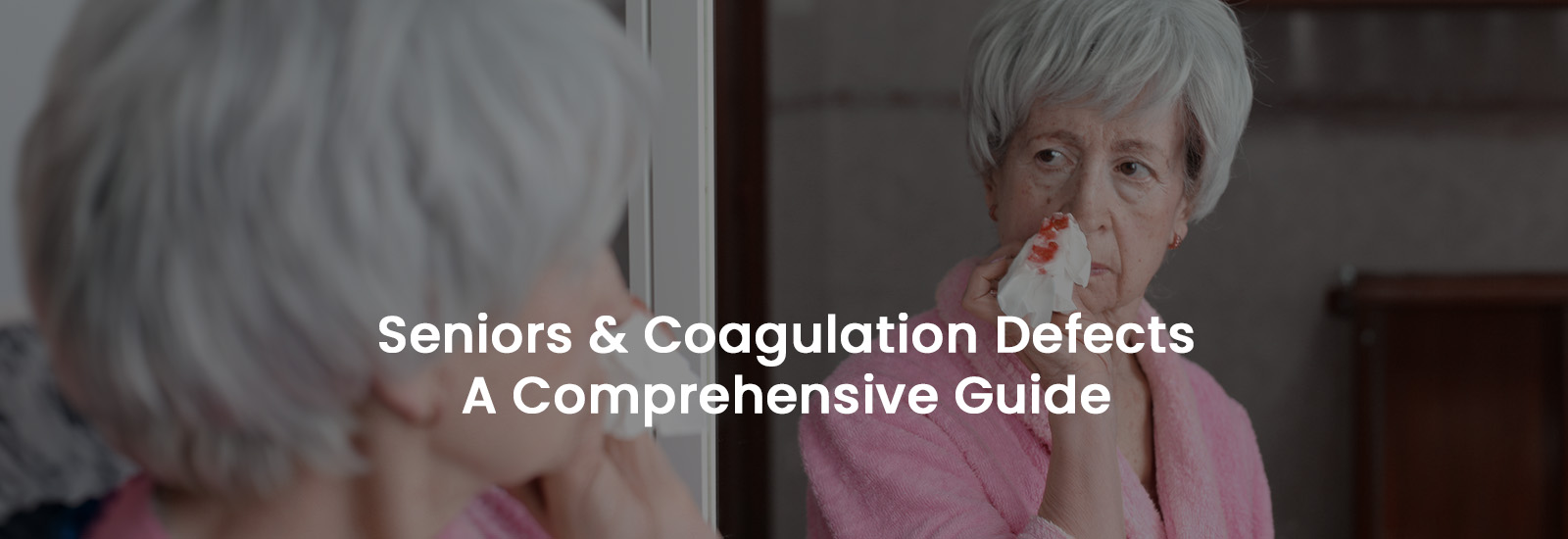
Most people have experienced bad breath at least once in their life. Certain foods like garlic and onion, or sugary beverages like soda, can momentarily cause bad breath. But persistent bad breath is a source of concern. It can make people feel embarrassed and self-conscious; and it can also significantly affect their social life.
In the United States, 25-30% of people report suffering from bad breath. People employ a wide variety of mints and mouthwashes to reduce or mask mouth odor. But these products don’t address the root causes of the problem.
Causes of Bad Breath

The most common cause of bad breath is a buildup of bacteria and germs in the mouth. When food particles left in the mouth are not cleaned properly, bacteria break them down and produce sulfur compounds which result in bad breath.
There are also a few other causes that can contribute to bad breath, such as:
Poor oral hygiene
Food often gets stuck in between or on the teeth after a meal. If not cleaned properly, these leftover food particles will begin to rot inside the mouth and cause bad breath. Additionally, poor oral hygiene can allow plaques or tartar to form on the teeth. Plaque is a soft, sticky film of bacteria that forms on the teeth, while tartar is the gradual discoloration caused by hardened food particles that have accumulated on the surface over time. Both plaque and tartar can destroy the tooth enamel and make it more susceptible to cavities and decay.
Acidity
Bacteria thrives in an acidic environment. A diet high in acidic foods or medical conditions like gastroesophageal reflux disease (GERD) can make it easier for bacteria to multiply inside the mouth and produce unpleasant odors. Dehydration can also increase the likelihood of having an acidic mouth which in turn can cause bad breath.
Certain foods
Protein rich foods like meat and dairy can cause bad breath as they break down into amino acids that release odorous sulfur compounds. Foods that are high in sugar and fat can also cause bad breath as they provide an ideal environment for bacteria to grow. Bacteria consume sugar and generate foul-smelling acids, and fatty foods leave more residues in the mouth, which they feed upon. Additionally, spicy foods contain strong-smelling compounds that linger in the mouth long after eating, thereby causing bad breath.
Gum Disease
Gum diseases like gingivitis and periodontitis can cause swelling and bleeding in the gums. When gum tissue becomes infected, it pulls away from the teeth. The gap left behind by the receding gums can be affected by bacterial growth. Additionally, gum diseases can cause inflammation in the mouth, which can also contribute to bad breath.
Smoking and drinking
Saliva serves an essential purpose of neutralizing the acids produced by bacteria in the mouth. Smoking and drinking can reduce the production of saliva and leave the mouth dry, which in turn can increase odor-causing bacteria.
Read More: 7 Drinks to Keep the Elderly Hydrated
Sinus Infection
During a sinus infection, mucus and other debris build up in the nasal passages and throat, providing a breeding ground for bacteria. Moreover, the pressure and congestion caused by a sinus infection can block the nasal passage, causing people to breathe through their mouth. When this happens, the mouth dries out, reducing the amount of saliva and thereby causing bad breath.
Read More: What to Expect During a Routine Dental Exam?
Although having bad breath can cause embarrassment, there are various measures one can take to prevent it.
How to Prevent Bad Breath
To prevent bad breath, one can follow these steps:
- Establish a consistent oral hygiene routine that includes brushing twice a day and flossing at least once daily to remove bacteria and food particles that lead to bad breath.
- Clean the tongue daily with a tongue scraper or toothbrush, as the white coating on the tongue can accumulate odor-causing bacteria.
- Incorporate the use of an antibacterial mouthwash into the oral hygiene routine.
- Ensure adequate hydration by drinking plenty of water, as this can help keep the mouth moist and wash away food particles that get stuck in the mouth.
- Limit the consumption of foods that contain garlic, onions, and spices with strong odors, as their smell lingers in the mouth for several hours.
- Refrain from using tobacco products, as smoking and chewing tobacco can cause bad breath and increase the risk of gum disease.
- Visit a dentist for regular dental checkups to detect and treat gum disease and other conditions that may result in bad breath.
Elderly individuals who are taking medications such as painkillers or antidepressants may also struggle with bad breath. Poorly maintained dentures can contribute to this issue as well. To address this, it’s crucial for seniors to consult with their doctor if they are experiencing bad breath while taking these medications. Regular visits to the dentist can also provide guidance on maintaining proper denture care and addressing bad breath.
Conclusion
Although bad breath is a fairly common problem, it can be easily prevented through the implementation of a proper oral hygiene routine. If bad breath persists, it could be a sign of a serious underlying medical condition. Individuals with bowel obstruction, ketoacidosis, or an abscessed tooth are also likely to suffer from chronic bad breath. Therefore, it is important to visit a dentist regularly to receive standard dental health services that can identify the root cause of bad breath and detect serious medical conditions early on. For regular dental checkups, visit the nearest EliteCare clinic. EliteCare is one of Florida’s best medical clinics, with a team of highly trained primary care physicians who offer services like venipuncture, immunizations, EKG and more. Visit their website to schedule an appointment today.






